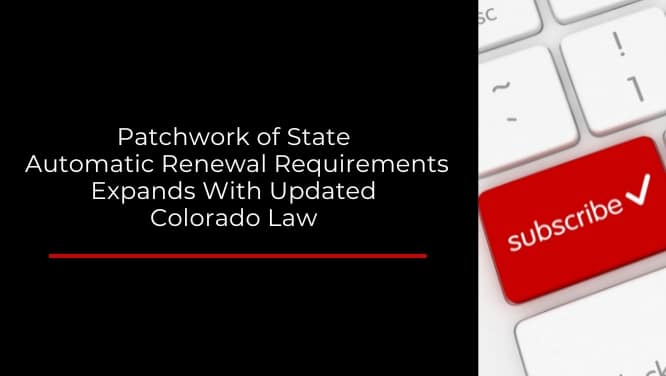Colorado Businesses: Is it time to amend your employment agreements?

- Brad L. Schoenfeld
- |
- April 25, 2022
The real business implications of Colorado’s “new” non-compete legislation
Recent updates to Colorado’s non-compete statute have created a buzz among business leaders and employment law experts. Through SB 21-271, the Colorado General Assembly, as of March 1, 2022, added a key provision to Colorado’s non-compete statute, C.R.S. § 8-2-113 (the “Act”), putting those knowingly out of compliance with the law at risk of criminal misdemeanor charges and fines, or even jail time.
Colorado is the latest among more than a dozen states that have taken on issues around non-competes in the last five years, putting restrictions in place that have made these agreements harder to implement or enforce. And it’s the first of what is expected to be many states to adopt more stringent penalties for offenders.
Why? According to estimates from the Economic Policy Institute, as many as 60 million private-sector workers may be covered by non-competes. Proponents of non-competes argue they help to protect business interests; opponents argue they could harm employees and the workforce overall.
All this news has many business leaders asking questions: Is our business in compliance? Do our employment agreements need to change? How will these penalties be enforced and who exactly is liable if a business is out of compliance?
Now is a good time for companies to reassess their employment agreements. Here, are some key considerations:
The criteria for legal non-competes hasn’t changed, but penalties and potential enforcement has.
For the most part, non-competes have long been prohibited in Colorado, unless they meet one of these key exceptions:
- Protecting trade secrets
- Protecting the purchaser in connection with the sale of a business
- Recovery of the expense of educating and training an employee who has worked for an employer for fewer than two years
- Contracts with officers, executive and management personnel and the professional staff serving those individuals
In addition to meeting one of these exceptions, any non-competes must also be considered reasonable. This means they shouldn’t be overly restrictive in scope and should only cover a reasonable length of time and geographic space. But as with many regulations, determination of what is reasonable, or what is overly restrictive, can be subjective. If in doubt, speak with your legal counsel to understand what precedent may apply to your business.
The violation of laws governing non-compete statutes was already punishable by criminal penalty in Colorado under C.R.S. § 8-2-115; but the new language specifies that violations will be considered a class 2 misdemeanor that is punishable by a $750 fine, up to 120 days imprisonment, or both.
If you’re unsure if your company is in compliance, it’s time to take a closer look.
If some of your employment agreements includes a non-compete, it’s more important than ever to be in compliance with state regulations. It’s not enough to have a non-compliant clause that your company doesn’t enforce — simply knowingly having one that’s not compliant puts you at risk for legal repercussions.
Your legal counsel can work with you to assess your current employment agreements and identify appropriate (and inappropriate) uses of non-competes. Your counsel can also create new agreements where necessary or amend old ones.
Key takeaways for Colorado employers:
If any of your employment agreements currently have non-competes, it’s time to re-evaluate both the agreements and actions commonly taken by your organization to enforce them.
- Did you engage with legal counsel to create these employment agreements?
- Do your agreements meet one or more of the key exceptions above, and can be considered reasonable in scope, duration and geography?
- What are your practices for enforcing elements of your existing agreements and could those practices trigger penalties?
The Act’s new language creates a great deal of uncertainty, as it remains to be seen if or how criminal charges might be pursued for violations. But businesses should understand that the implications go beyond an agreement being unenforceable to include criminal penalties. By being proactive and reassessing employment agreements now, business leaders can minimize risk and ensure that valid agreements remain enforceable.
If you have questions about your employment agreements, contact your KO attorney for more information.
Brad Schoenfeld is a partner in the Denver office of KO. Brad specializes in structuring, drafting, and negotiating complex contracts related to manufacturing and supply, product sales and distribution, research and development, technology licenses and transfers, clinical trials, reseller and distributor relationships, consulting and professional services, HR/employment, procurement, outsourcing, hosting, e-commerce, and partnering.




